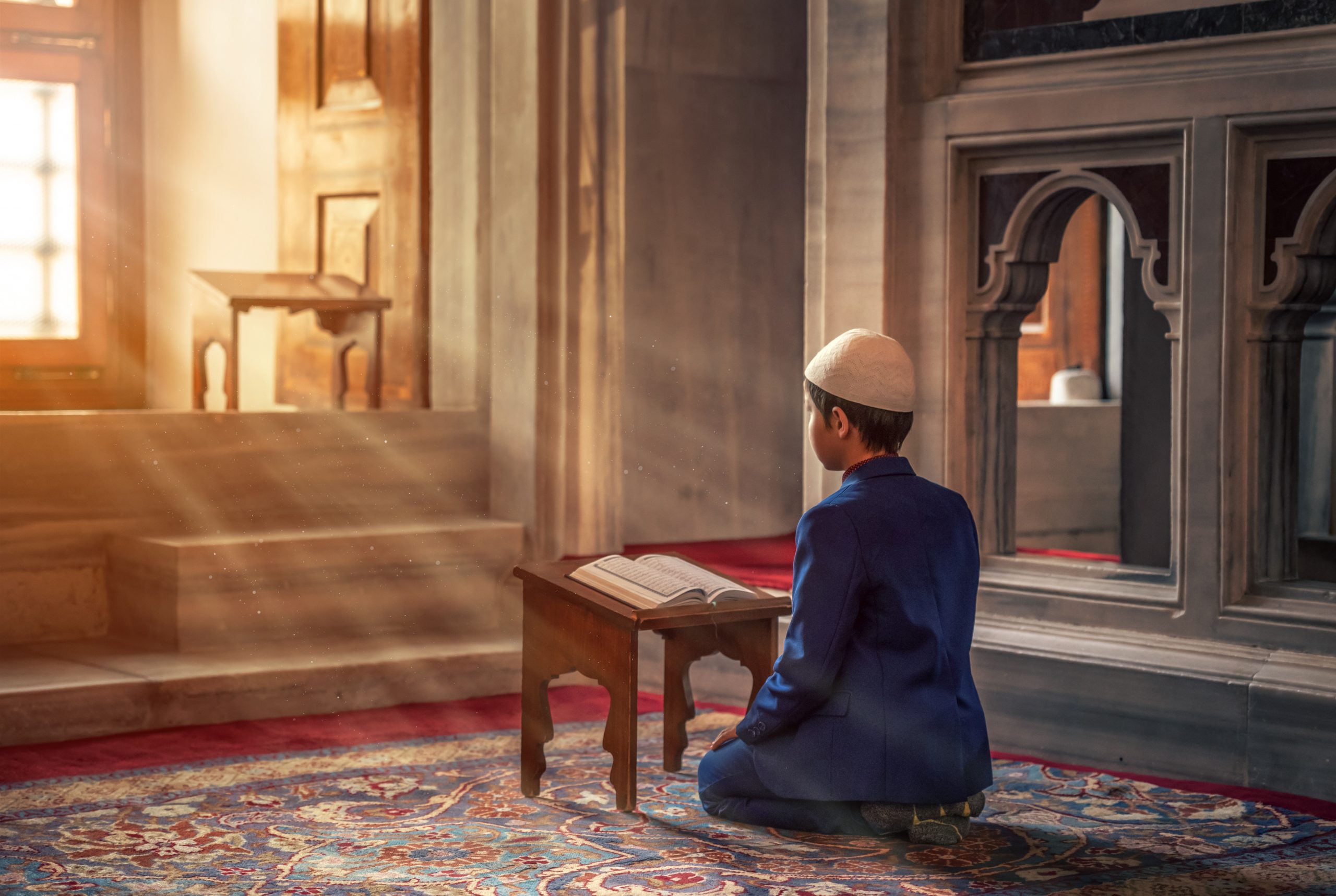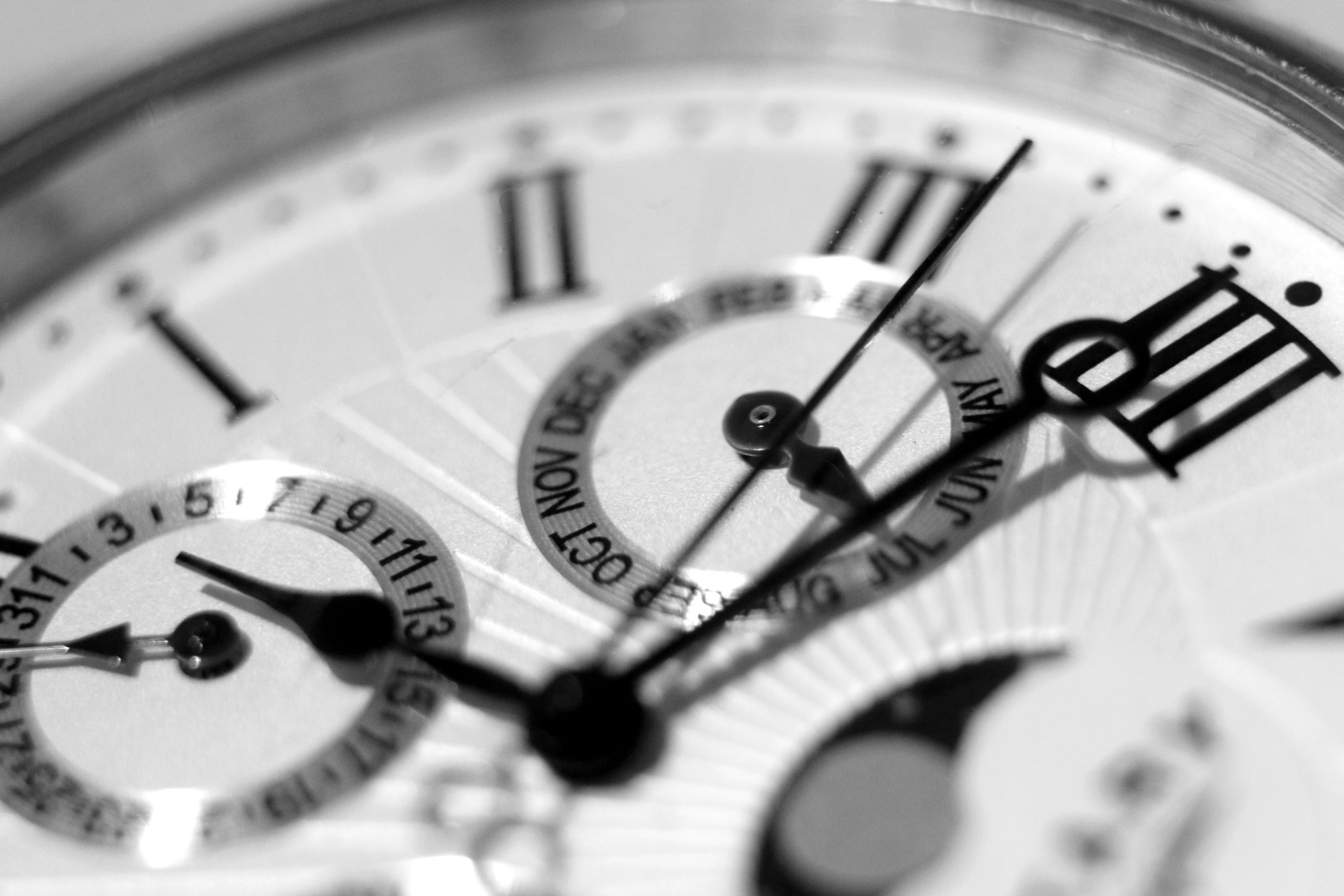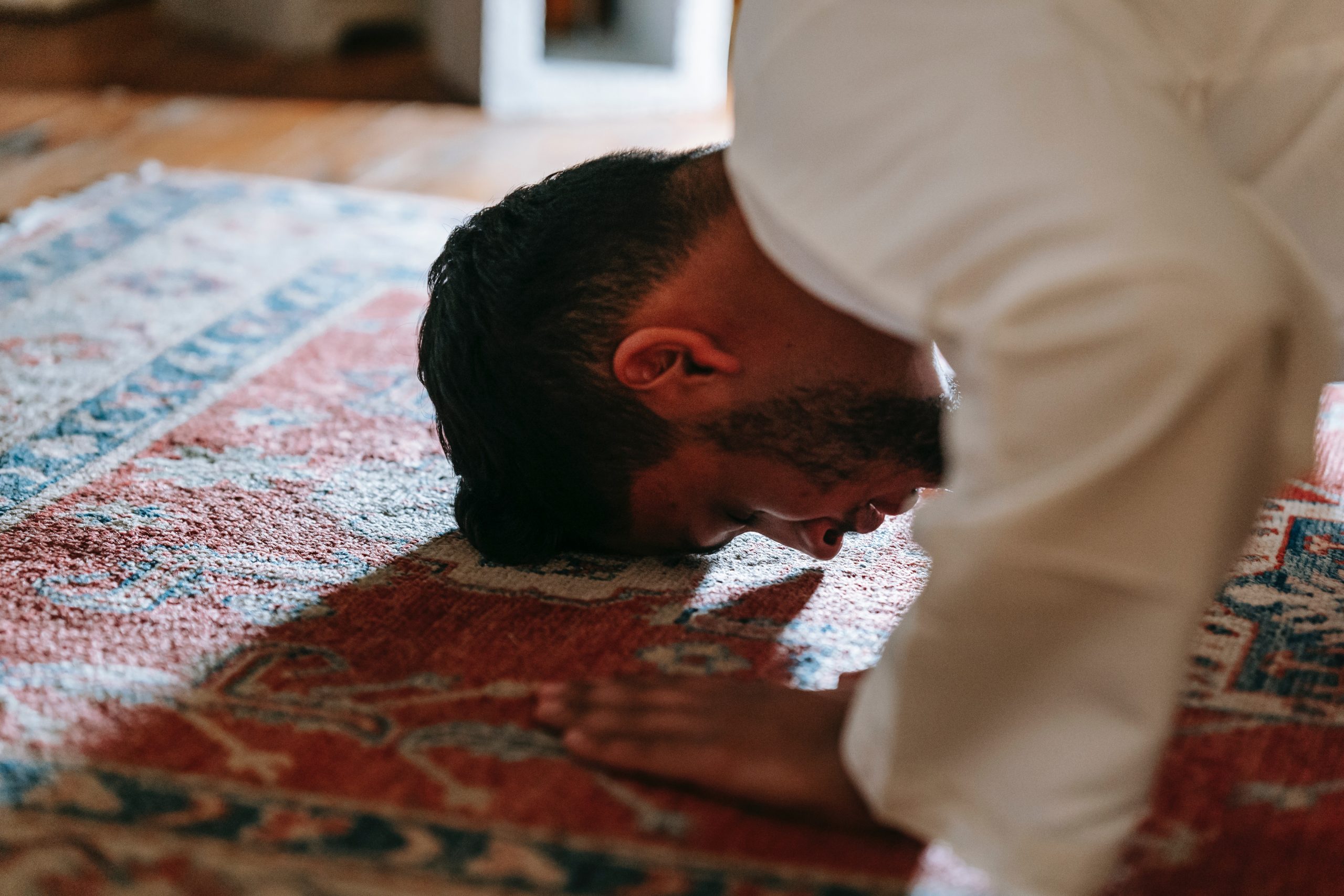
FATWA::: Nawafil in the masjid immediately after jumah prayer
Question:
Where can i get the evidence in sahih hadith the observing of nawafil in the masjid immediately after jumah prayer? thanks


Question:
Where can i get the evidence in sahih hadith the observing of nawafil in the masjid immediately after jumah prayer? thanks
All praises are due to Allah. May the peace and blessing of Allah be upon Muhammad, his household, companions and all believers till the last day.
The sunnah is to observe four rakats after solatul jum’ah and this could be found in sahih muslim thus:
Abu Huraira reported Allah’s Messenger (may peace be upon him) as saying: When any one of you observes the Jumu’a prayer (two obligatory rak’ahs in congregation), he should observe four (rak’ahs) afterwards. (Muslim)
Also,
Suhail reported on the authority of Abu Huraira that the Messenger of Allah (may peace be upon him) said: When you observe prayer after (the two obligatory raklabs) of Jumu’a, you should observe four rak’ahs (and ‘Amr in his narration has made this addition that Ibn Idris said this on the authority of Suhail): And if you are in a hurry on account of something, you should observe two rak’ahs in the mosque and two when you return (to your house). (Muslim)
It is equally permissible to observe two rakahs even though the four rakahs is more emphatic.
‘Abdullah b. ‘Umar, while describing the Nafl prayer of the Messenger of Allah (may peace be upon him), said: He did not observe (Nafl) prayer after Jumu’a till he went back and observed two rak’ahs in his house. (Muslim)
It is permissible to do the nafilah at home after jum’ah or in the mosque after the jum’ah prayer. But if it is after the jum’ah prayer in the mosque, then one should distinguish between obligatory prayer of jum’ah and the nafilah.
Allah knows best
Imam Sherifdeen Ibrahim
Naibul Amir Cultural Affairs
The Muslim Congress National Headquarters

Question:
Can we pray Ishai with those praying Taraweeh with the intention of Ishai
All praises are due to Allah. Peace and blessings of Allah be upon prophet Muhammad, his household, companions and all believers till the day of resurrection.
It is permissible to pray solatul-isha with those observing the taraweeh prayer. The difference in the intention between them is not a factor to be considered in this situation. This is based on the report narrated by Jaabir ibn ‘Abd-Allaah that Mu’aadh would pray with the Messenger of Allah (peace and blessings of Allaah be upon him), then go back and lead his people in that prayer. (Agreed upon)
In this hadith, Mu’aadh was leading his people with intention of supererogatory act. Therefore it is correct to observe isha behind those observing taraweeh.
Allah knows best.
Imam Sherifdeen Ibrahim
Naibul Amir, Cultural Affairs
The Muslim Congress National Headquarters

Question:
Salaamualiekum warahmotulah
Is it permissible for me to recite two or more different chapters of the Holy Quran in 1 rakah of the obligatory prayer?
In the name of Allah, the Beneficent, the Merciful
All praises are due to Allah, the All-Knowing, All-Wise.
Peace and blessing be upon the teacher of mankind truth of goodness- Muhammad, his household, companions and all followers of his guidance till the day of resurrection.
On the question of permissibility to recite different chapters in a rak’ah of the obligatory prayer after suratul-faatihah, this is permissible according to the Islamic shariah based on the following hadith:
‘A’isha reported: The Messenger of Allah (may peace be upon him) sent a man in charge of an expedition and he would recite for his Companions during their prayer, ending (recitation) with: “Say, He is God, One.” When they returned mention was made of it to the Messenger of Allah (may peace be upon him). He (the Holy Prophet) told them to ask him why he had done like that. So they asked him and he said: Verily, it is an attribute of the Compassionate One, and (for this reason) I love to recite it. The Messenger of Allah (may peace be upon him) thereupon said: Inform him that Allah loves him. (Bukhari; 6940, Muslim; 813)
Narrated Ubaidullah from Thaabit from Anas: A man from the Ansar used to lead them in prayer in the masjid of Quba and whenever he begins to read a Surah (after Faatihah) – of which is read- to them in prayer, he commences with “Say, He is God, One.” till he concludes it, then hereads another Surah with it, and he does that in every circle (rak’ah) of prayer. Thereafter his companions talked to him, they said: “You used to start with this Surah, then you do not see that it is sufficient for you till you recite another, it is either you read it (alone) or leave it and read another. He said: “I would not leave it, if you wish that I lead you with that I would do, but if you dislike it, I leave you. They see him as among the best of them and they dislike that they are led by other than him. When the Prophet, peace be upon him came to them, they informed him and he said: “O so person, what prevented you from doing what your companions told you and made you stuck to this surah in every rak’ah? He said: “I love it” and He replied: “Your love for it will grant you admittance to Paradise.” (Bukhari; 741)
Imam Bukhari also have a chapter in his Sahih titled- “Combining two surahs in the rak’ah,” dedicated to show the permissibility of reciting more than one surah after Suratul- Faatihah.
Allah knows best.
Imam Sherifdeen Ibrahim
Naibul Amir Cultural Affairs
TMC National Headquarters

Question:
Assalaam Alaykum. Please from when is the beginning of solat dua and when does it end?
In the name of Allah, the Beneficent, the Merciful.
All praises are due to Allah, the Lord of the worlds. May His peace be upon our leader, Muhammad, his household, companions and those who follow them in goodness.
As for your question on the beginning and ending time of solatu-al-duha, it starts from when the sun rises till it has reached about a few length after rising- some scholars described that to be about ten – fifteen minutes after sunrise. Then, it ends just shortly before the sun reaches the zenith (meridian), some scholars have described that as some ten minutes before time of solatu al- zhuhr.
Secondly for Solatul Istikharah, it is an authentic sunnah. The description of Salaat al-Istikhaarah (Istikhara Prayers) was reported by Jaabir ibn Abd-Allah al-Salami (may Allah be pleased with him) who said: “The Messenger of Allah (peace and blessings of Allah be upon him) used to teach his companions to make istikhaarah in all things, just as he used to teach them soorahs from the Quran. He said: ‘If any one of you is concerned about a decision he has to make, then let him pray two rakaahs of non-obligatory prayer, then say:
O Allah, I seek Your guidance [in making a choice] by virtue of Your knowledge, and I seek ability by virtue of Your power, and I ask You of Your great bounty. You have power, I have none. And You know, I know not. You are the Knower of hidden things. O Allah, if in Your knowledge, this matter (then it should be mentioned by name) is good for me both in this world and in the Hereafter (or: in my religion, my livelihood and my affairs), then ordain it for me, make it easy for me, and bless it for me. And if in Your knowledge it is bad for me and for my religion, my livelihood and my affairs (or: for me both in this world and the next), then turn me away from it, [and turn it away from me], and ordain for me the good wherever it may be and make me pleased with it.”Allaahumma inni astakheeruka bi ‘ilmika wa astaqdiruka bi qudratika wa as’aluka min fadlika, fa innaka taqdiru wa laa aqdir, wa ta’lamu wa laa a’lam, wa anta ‘allaam al-ghuyoob. Allaahumma fa in kunta ta’lamu haadha’l-amra (then the matter should be mentioned by name) khayran li fi ‘aajil amri wa aajilihi (or: fi deeni wa ma’aashi wa ‘aaqibati amri) faqdurhu li wa yassirhu li thumma baarik li fihi. Allaahumma wa in kunta ta’lamu annahu sharrun li fi deeni wa ma’aashi wa ‘aaqibati amri (or: fi ‘aajili amri wa aajilihi) fasrifni ‘anhu [wasrafhu ‘anni] waqdur li al-khayr haythu kaana thumma ardini bihi (Bukhari)
Allah knows best.
Imam Sherifdeen Ibrahim
Naibul Amir Cultural Affairs (NACA)
TMC National Headquarters

Question:
Is it good to pray magrib with Imam when they’re praying ishai.
In the name of Allah, the Beneficent, the Merciful.
All praises are due to Allah the Lord of the worlds. May His peace and blessings be upon our leader- Muhammad, his family and companions and all the followers of his guidance till the day of recompense.
O Allah grant us beneficial knowledge of the deen.
It is an established tradition of solat in Islam that it is permissible in solat to have difference in intention; between the Imam and the congregation. This is clearly reported on several accounts in the pristine sunnah.
Mu’aadh bn Jabal would observe solatul- isha with the prophet (peace be upon him), then he would return to his people and lead them in the same solat- isha. In that situation his solat with his people would be supererogatory while it is the obligatory prayer for his people.
Therefore, it is permissible to observed solatul maghrib behind an Imam observing solatul ishaa. When the Imam stands for the fourth rak’at of isha, the person observing maghib would remain seated to say the last tashahud (meaning: At-tahiyyaatu lillah …, solatu ‘ala-n-nabiyyi, and the recommended prayers for that position), untill the Imam returns to complete his fourth rak’at and do the tasleem, he should then follow the Imam in that and do the tasleem.- this is better to preserve the following of Imam in solat.
Some scholars as well believe it is permissible for the person observing maghrib to do the tasleem after the tashahud to end his solat without waiting for the Imam, and then, stand up again to join the Imam in order continue solatul- isha with him.
Apart from the above, it is acceptable as well to firstly observe solatul- maghrib alone, then join the Imam at whatever remains of the solatul- isha.
Allah knows best.

Alhamdulillah, It is permissible for a Muslim to name his child khidr. Khidr is the name of the contemporary of Prophet Musa (AS). Most scholars believe he was a Prophet of Allah, though some others affirm he was an angel or otherwise. In line with the majority of Islamic scholars that he was a prophet, choosing names of the prophets (AS) is permissible in Islam, as demonstrated in the practice of our prophet- Muhammad- peace be upon him, when he named his son IBRAHIM- to take after Prophet Ibrahim- (AS)
Anas b. Malik reported that Allah’s Messenger (may peace be upon him) said: A child was born to me this night and I named him after the name of my father Ibrihim. (Muslim)
Allah knows best.
Imam Sherifdeen Ibrahim
Naibul Amir Cultural Affairs (NACA)
TMC National Headquarters
| Cookie | Duration | Description |
|---|---|---|
| cookielawinfo-checkbox-analytics | 11 months | This cookie is set by GDPR Cookie Consent plugin. The cookie is used to store the user consent for the cookies in the category "Analytics". |
| cookielawinfo-checkbox-functional | 11 months | The cookie is set by GDPR cookie consent to record the user consent for the cookies in the category "Functional". |
| cookielawinfo-checkbox-necessary | 11 months | This cookie is set by GDPR Cookie Consent plugin. The cookies is used to store the user consent for the cookies in the category "Necessary". |
| cookielawinfo-checkbox-others | 11 months | This cookie is set by GDPR Cookie Consent plugin. The cookie is used to store the user consent for the cookies in the category "Other. |
| cookielawinfo-checkbox-performance | 11 months | This cookie is set by GDPR Cookie Consent plugin. The cookie is used to store the user consent for the cookies in the category "Performance". |
| viewed_cookie_policy | 11 months | The cookie is set by the GDPR Cookie Consent plugin and is used to store whether or not user has consented to the use of cookies. It does not store any personal data. |